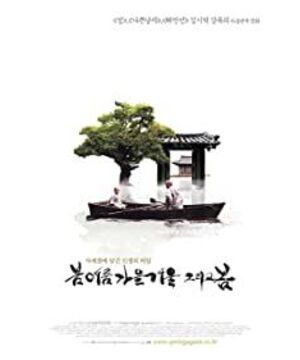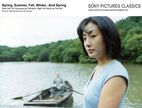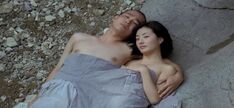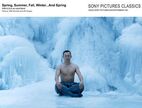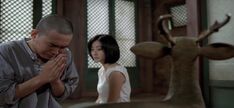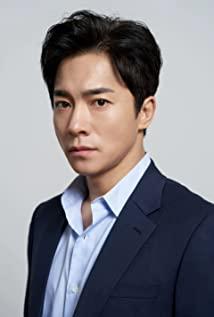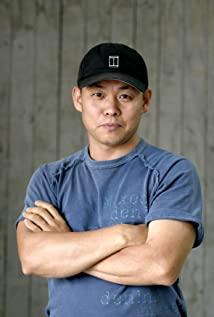Kim Ki-deok's movies always have a bit of heavy taste to me, but they were also "small and fresh" back then, and I don't know the cultivation process from small and fresh to heavy taste. I watched "Spring, Summer, Autumn, Winter and Another Spring" yesterday. ", the film ten years ago, the picture is small and fresh, but the violation makes people feel cold, and this coldness continues in the later films as always in his later films.
I don't know if he was influenced by Japanese director Imamura Shohei . Influenced, but inexplicably felt that their styles were very similar, so I saw that the plot of animal mating in "Spring, Summer, Autumn, Winter and Spring" was similar to the scene of snakes and frogs mating in "Narayama Festival Kao". Human animals Instinct is revealed in these actions every time, but the difference is that Kim Ki-deok can show you the humanity that has not been wiped out in every redemption, although this humanity will make you feel the pain of gouging out from time to time.
Spring, summer, autumn and winter, cold and summer, the film uses the coherence of the four seasons to make a few characters appear. In spring, the little monk tied stones to snakes, frogs, and fish for his own pleasure. The master's lesson Like a stick drink, when you let them go, some of them died, or they were dying. The old monk punished the young monk with the method of carrying stones to complete his redemption.
I always have a preference for movies with beautiful pictures. The fresh and bright pictures in the movies make me feel that Kim Ki-duk is not only a director, but also a painter. From time to time, I think of Wang Zengqi's "Precept", and wrote about the light and pure love between the little monk Xiaomingzi and Xiaoyingzi. Although the author said that it was a dream he had more than ten years ago, the kind author made this dream a good one. The ending, for the sake of human nature, seems to me to make up for some shortcomings in his teacher Shen Congwen's "Border Town". But Kim Ki-deok is not like this, "Love is my only sin", when summer comes, lust also evaporates in the air with the heat, all love and hatred also begin to grow, the little monk and girl seem to be seduced by snakes, He started a banishment and entered the world without hesitation for love. This is not wrong. Maybe the mistakes of his youth have made a comeback, but this time there is no "Master" to teach him good and evil and right and wrong, so the Buddhist gate on the mountain The rules and precepts in the world are
vulnerable .
The autumn I came back was indeed absconded as a wife murderer, full of scars, and returned alone and full of ill-will. I have no intention of speculating on Kim Ki-deok's attitude towards the world, but it is obvious that he regards Buddhism as his salvation. Otherwise, how could the old monk let the young monk write the "Heart Sutra" before he was taken away by the police, and engraved it on the floor in front of the door. In the end, even the police believed the cruelty of the young monk. The fallen wood disappeared, and he even picked up candles for the little monk who had engraved the Heart Sutra at night, and he was not put in handcuffs when he was arrested.
In the snow-covered winter, the little monk carried the Buddha statue up the mountain, as if the sins of those years were also resolved on this mountain road. This clip seemed to add a lot to the film. I also thought of the end of "Narayama Festival Exam" like a conditioned reflex. This point is redemption, the Buddha statue placed on the top of the mountain is facing the temple gate. In Shohei Imamura's films, there is a cold that you can't resist. You can only freeze with him, but there is nothing you can do.
I don't have a preference for pastoral literature or film and television works because of idealization, but in my opinion, there must be a utopia of my own outside the world I live in, which can never be reached, but it is there. Kim Ki-deok just gave me such an ending. Spring, summer, autumn and winter are followed by another spring. The little monk of that year became an old monk, telling the eternal truth to the child who was abandoned in the temple.
View more about Spring, Summer, Fall, Winter... and Spring reviews


